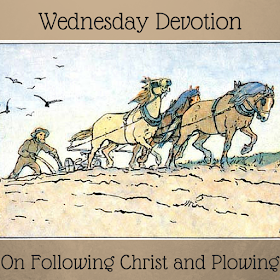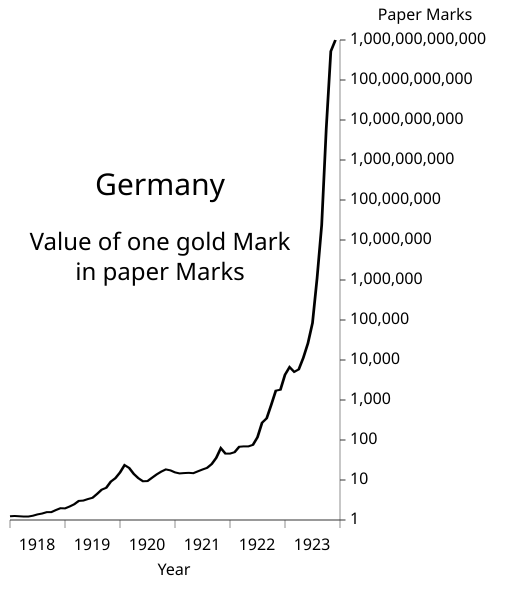Luke 8: 26 - 40 NHEB
26 They arrived at the country of the Gerasenes. which is opposite Galilee.
27 When Jesus stepped ashore, a certain man out of the city who had demons for a long time met him. He wore no clothes, and did not live in a house, but in the tombs.
28 When he saw Jesus, he shouted, and fell down before him, and with a loud voice said, “What do I have to do with you, Jesus, you Son of the Most High God? I beg you, do not torment me!”
29 For Jesus was commanding the unclean spirit to come out of the man. For the unclean spirit had often seized the man. He was kept under guard, and bound with chains and fetters. Breaking the bands apart, he was driven by the demon into the desert.
30 Jesus asked him, “What is your name?” He said, “Legion,” for many demons had entered into him.
31 They begged him that he would not command them to go into the abyss.
32 Now there was there a herd of many pigs feeding on the mountain, and they begged him that he would allow them to enter into those. He allowed them.
33 The demons came out from the man, and entered into the pigs, and the herd rushed down the steep bank into the lake, and were drowned.
34 When those who fed them saw what had happened, they fled, and told it in the city and in the country.
35 Then people went out to see what had happened. They came to Jesus, and found the man from whom the demons had gone out, sitting at Jesus’ feet, clothed and in his right mind; and they were afraid.
36 Those who saw it told them how he who had been possessed by demons was healed.
37 All the people of the surrounding country of the Geresenes asked him to depart from them, for they were very much afraid. He entered into the boat, and returned.
38 But the man from whom the demons had gone out begged him that he might go with him, but Jesus sent him away, saying,
39 “Return
to your house, and declare what great things God has done for you.” He
went his way, proclaiming throughout the whole city what great things
Jesus had done for him.
I love this story for a lot of reasons.
First, this was a Gentile city with a heavy Greco/Roman population and Jesus went there on purpose. This in my opinion proves that Jesus didn't limit himself to the Jewish people even during His earthly ministry.
Second, demons knew who Jesus was and knew He had power to command them. Not only that, demons can experience fear. They begged not to be cast into the abyss. The fact that demons begged shows that they fear the abyss. There are entirely articles and even books written about the abyss, so we won't go there for now. Just the realization that demons experience fear is enough.
Third, this shows the absolute power and authority Jesus had as a person on this earth. Just the knowledge that he was able to cast that many demons out is mind boggling. But this story brings up some questions as well.
Third, this shows the absolute power and authority Jesus had as a person on this earth. Just the knowledge that he was able to cast that many demons out is mind boggling. But this story brings up some questions as well.
Why was the demon's name Legion?
When the demon began begging Jesus not to send them to the abyss, Jesus asked its name. The response was "my name is Legion for we are many" Mark 5:9. A Roman legion normally consisted of up to 6,000 soldiers. Why do I bring this up? Well if there were say only 5 demons in the man then logically only 5 pigs would have committed suicide. Again according to Mark 5:13 over 2000 pigs ran into the sea. There could have been multiple demons in a pig, but I think it is safe to say that around 2000 demons were in this man.Why did Jesus allow the demons to enter the pigs?
This is a question I have thought about often. Was Jesus showing mercy on the demons? What happened to the swine herder? Why did the people ask Him to leave? Why did Jesus make the man stay and not allow him to become a disciple? We will take each one of these questions.Was Jesus showing mercy on the demons?
I actually thought this at first, but then I thought why would he do that? At first I thought Jesus was just that compassionate, but as I kept reading I realized that there were several times that the Bible said Jesus was moved with compassion. This was not one of those times. I think Jesus saw an opportunity to impact an entire city and not just this man and his family. I know this sounds bad, but delivering a man from his bondage would not have had as immediate an impact as the pigs did. The pigs effected the entire city. These were Gentile people and we love our bacon. Having that many pigs die at once was a big deal. That in conjunction with the man now being able to function was huge.What happened to the swine herder?
I wish I could give you an answer, but I really can't. I do know that everyone who was keeping the pigs witnessed what happened and told the residents of the city what had occurred. For a short period of time, I am sure they were local celebrities.Why did the towns people ask Jesus to leave?
The most obvious reason is fear, but why would these people be more afraid of Jesus than a demon possessed man? I think there are a couple of reasons the towns people feared Jesus more than the demon possessed man.- They had gotten used to him. Yes he terrorized people and he was naked and he couldn't be confined, but "That is just crazy ol' Joe." If this were today this man might have even been a tourist attraction. I can imagine people coming from miles around just to see Ol' Joe. They would have had to bought something to eat and maybe even spend the night.
- This was different. When they didn't want to deal with Ol' Joe they would bind him with chains. This would keep him for a little while, but he would break the chains and run off. Now however; he was sitting at the feet of a man, fully clothed, and carrying a normal conversation. This would be enough to make anyone question the power involved.
- This event cost the town dearly. This herd of pigs could have been the entire supply of pork for that city. The truth is we don't know. What we do know is this freaked out the community. Don't Mess With Our Pigs!
Why did Jesus not let the man follow Him?
I really wish we knew this guys name. This man was the first evangelist. His job was simple tell your story. That is all, no more. Apparently he told it well. He told everyone who would listen and even talked at people who didn't want to listen. Not only did the man that was freed talk, you know the swine herders talked about it a lot as well.
40 When Jesus returned, the crowd welcomed him, for they were all waiting for him.
Here is where the story of an entire town turning Jesus away because He messed with their bacon becomes a story of victory. We really don't know how long it was between these two trips, but we do know it was long enough for the word to spread. The second time Jesus came to town not only was He welcomed, the town was waiting for Him to return.
I am sure this town was grateful to have the demon possessed man freed. No more worrying if he would attack a merchant on the road, no more interruptions during festivals, there would be many reasons to be thankful that this man was freed from this bondage. But, before the full knowledge of what had truly occurred in the life of this man and in the life of the town, there was the immediate loss of their ham, bacon, and chops. No matter who we are we have things that we would like to be freed from. But just like this town there are things that we would rather not do without.
We do not have to follow strict dietary guidelines in order to become a Christian. There are a lot of things that people claim are a part of the Christian life that really aren't. There are many rules that have been made since the time of Christ. These rules may have started out with a good reason, but in time they become ritual more than worship or practice rather than praise.
I am a firm believer that when a person becomes a Christian they do not have to do anything on their own. The things that God wants them to give up, He will work on the person from the inside out and they will want to give those things up as well. Don't focus on legalism of religion. Focus on the freedom of Jesus.
I hope you enjoy these Wednesday Devotions.
Bringing Rural Back
Here is where the story of an entire town turning Jesus away because He messed with their bacon becomes a story of victory. We really don't know how long it was between these two trips, but we do know it was long enough for the word to spread. The second time Jesus came to town not only was He welcomed, the town was waiting for Him to return.
Conclusion
We don't see demon possession in modern times, or do we? I believe that demon possession is still alive and well in today's world. I do think most of the time it takes on a different look. The devil is smart, anyone who says he isn't has not been paying attention. I believe the devil adjust his strategy based on the situation. In a time when everyone was religious, fear was a great attractor of attention. In a time when people are more secular and selfish a more subtle approach is better.I am sure this town was grateful to have the demon possessed man freed. No more worrying if he would attack a merchant on the road, no more interruptions during festivals, there would be many reasons to be thankful that this man was freed from this bondage. But, before the full knowledge of what had truly occurred in the life of this man and in the life of the town, there was the immediate loss of their ham, bacon, and chops. No matter who we are we have things that we would like to be freed from. But just like this town there are things that we would rather not do without.
We do not have to follow strict dietary guidelines in order to become a Christian. There are a lot of things that people claim are a part of the Christian life that really aren't. There are many rules that have been made since the time of Christ. These rules may have started out with a good reason, but in time they become ritual more than worship or practice rather than praise.
I am a firm believer that when a person becomes a Christian they do not have to do anything on their own. The things that God wants them to give up, He will work on the person from the inside out and they will want to give those things up as well. Don't focus on legalism of religion. Focus on the freedom of Jesus.
I hope you enjoy these Wednesday Devotions.
Bringing Rural Back
Have something to add to this topic join the Forum on The Rural Economist.
If you would like to contribute to the conversation we would love to
have you join us. It is brand new, but I am sure it will grow.
Subscribe to our mailing list
You can like The Rural Economist on Facebook follow on The Rural Economist on Gplus. We now have a YouTube channel and
we cover all sorts of things. Hop on over and check them out, oh and
don't forget to subscribe. I have just joined Instagram if you would
like you can follow us HERE. We will be sharing several things over the next year, I hope to see you there.
Check out The Rural Economist on Pinterest
Visit The Rural Economist's profile on Pinterest.
Affiliate Link Disclosure: This post may
contain affiliate links. I may receive compensation for links,
endorsements, testimonials, or recommendations for any products
mentioned on this blog. If you see something you are interested in,
check them out. Thanks for your consideration.
You can like The Rural Economist on Facebook follow on The Rural Economist on Gplus. We now have a YouTube channel and
we cover all sorts of things. Hop on over and check them out, oh and
don't forget to subscribe. I have just joined Instagram if you would
like you can follow us HERE. We will be sharing several things over the next year, I hope to see you there.
Check out The Rural Economist on Pinterest
Visit The Rural Economist's profile on Pinterest.











